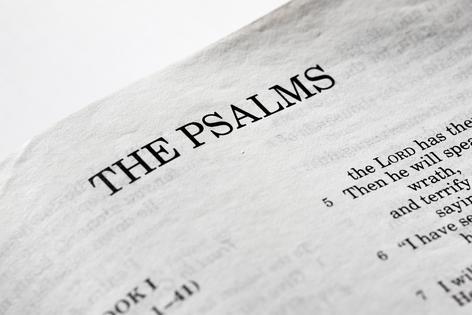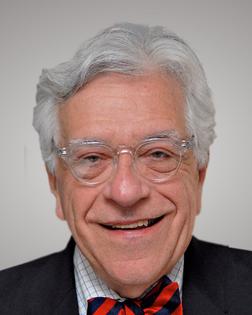The God Squad: More short Psalms for long study—Psalm 131, part 2
Well, last week I began my study guide to the 131st Psalm for M and her Bible study group at the Good Shepherd Lutheran Church in Harrisburg, Pennsylvania, in the hopes that by picking one of the shortest psalms in the Bible (just three verses), I might be able to get through the whole thing in just one column. No luck! I just got through one verse and then I hit my 800-word limit. Sorry. Here are the last two verses:
First of all, here is the whole thing in the translation offered in the King James Version:
Lord, my heart is not haughty, nor mine eyes lofty: neither do I exercise myself in great matters, or in things too high for me.
2 Surely I have behaved and quieted myself, as a child that is weaned of his mother: my soul is even as a weaned child.
3 Let Israel hope in the Lord from henceforth and for ever.
The second verse: Surely, I have behaved and quieted myself, as a child that is weaned of his mother: my soul is even as a weaned child. The image of a weaned child is perfect, which makes sense since God wrote (or inspired) this verse. A weaned child cries because he or she wants to suckle forever, but the child is also comforted by the nurturing mother’s milk that hopefully gave it a sense of confidence and security to face the world that lies beyond weaning.
The third verse: Let Israel hope in the Lord from henceforth and for ever. This is a perfect pivot from the wisdom of the weaned child. A good weaning bestows upon the child the memory of nurture and the hope that the future will not be bleak and predatory. The point of every faith is hope. The question is only, “What is the source of our hope?” The 131st Psalm offers up our only and our best answer. Our hope cometh from the Lord, maker of Heaven and Earth.
Let us now ask and let us now discuss:
What are the biggest mysteries you have ever faced and how did you face them? Did the big questions leave you despairing or hopeful?
And then let us discuss this question which will open up the previous question: If you could ask God just one question and be assured that God would give you the full truth in God’s answer to you, what would that question be? What do you most want to know from God?
I will share with you for your group’s discussion my question. This question has changed over the years. Once it was, “God why did you make everything that is delicious also fattening and everything that is healthful taste like straw? Then until I was 21 and met my beloved wife Betty, “God, why would anyone want to marry me?” Even after we married, I never asked her that question. It was so easy to pick her. I was just glad she picked me.
At this moment in my life, having just celebrated my 73rd birthday last week, and looking ahead to the back nine of my life, my question has changed. If I could ask God one question now it would be, “Was I a good man?”
I believe I am reasonably, passably, acceptably, good, but I also know that I am flawed and weak and more than occasionally fearful. Does this mean I am less good than I think I am or that people tell me I am? I know that in my work as a rabbi I have tried to do good things every day for people in need. What I do not know is whether or not I would have done those good things if I was not a rabbi. If I was a worker in some other field, would I still have developed the impulse to make a difference for the better? How much good did I do because I was in love with my reputation and how much good did I do because I was in love with goodness itself and God? Those are the things I would want to know now.
It seems so easy to me to identify truly good people I meet. I can spot them in an instant. I still think that my friend Father Tom Hartman was a saint. When I turn my goodness radar outward toward others it seems to work perfectly, but when I turn my goodness radar inward it seems so often to be mis-calibrated. I hope God knows enough about me to give me an answer, but I also know, like a weaned child, that when and if God does answer me, I will be in a place where my smartphone definitely does not work.
How are we all like weaned children?
(Send ALL QUESTIONS AND COMMENTS to The God Squad via email at godsquadquestion@aol.com. Rabbi Gellman is the author of several books, including “Religion for Dummies,” co-written with Fr. Tom Hartman.)
©2021 The God Squad. Distributed by Tribune Content Agency, LLC.
(c) 2021 THE GOD SQUAD DISTRIBUTED BY TRIBUNE MEDIA SERVICES, INC.










